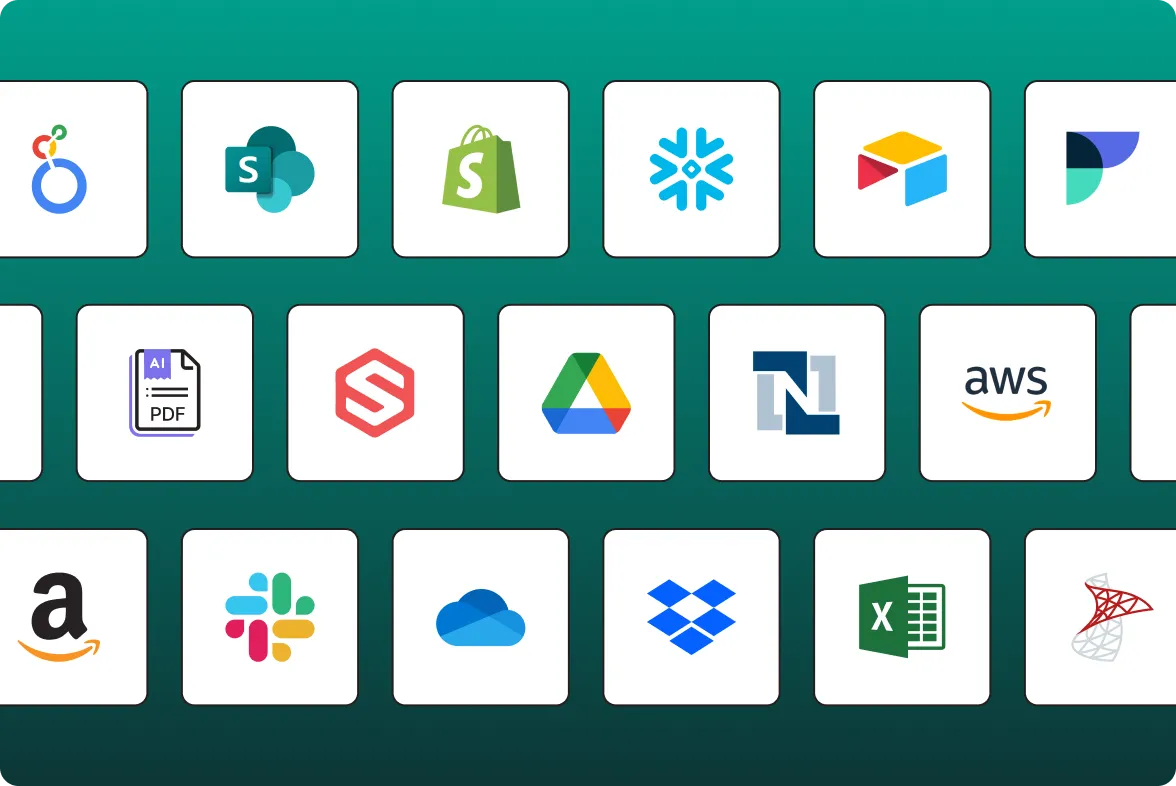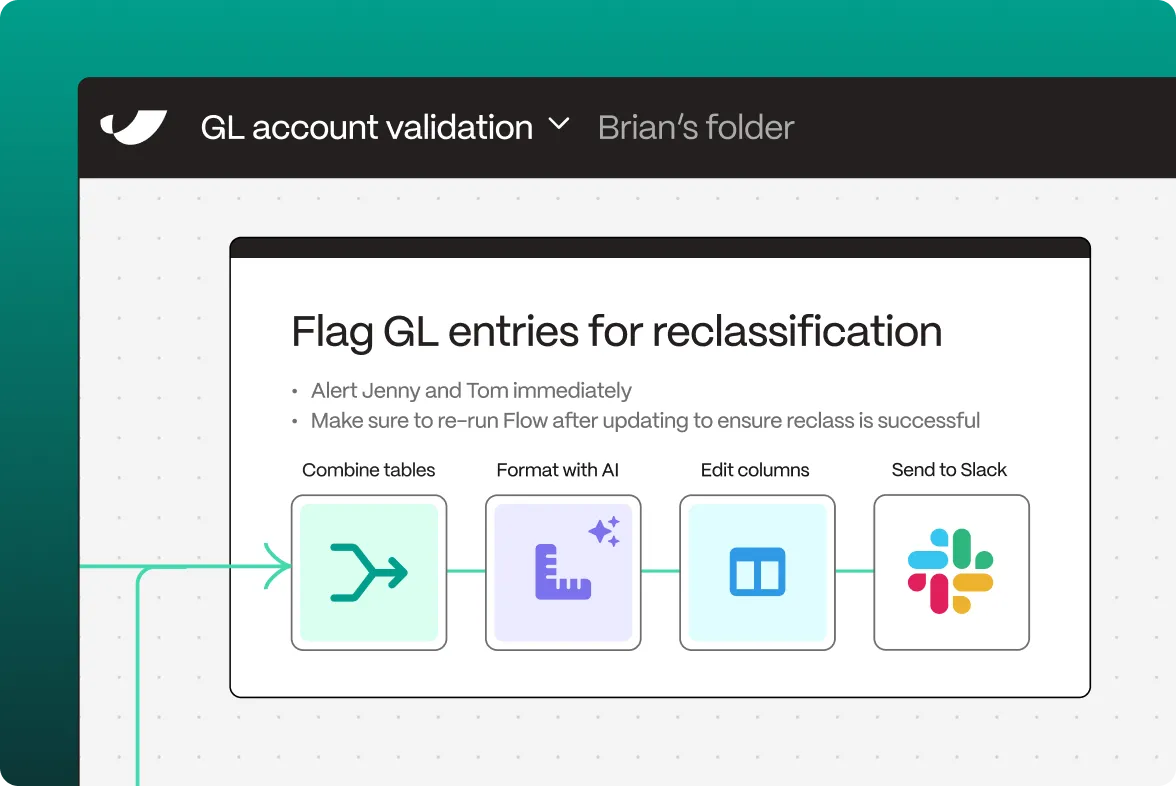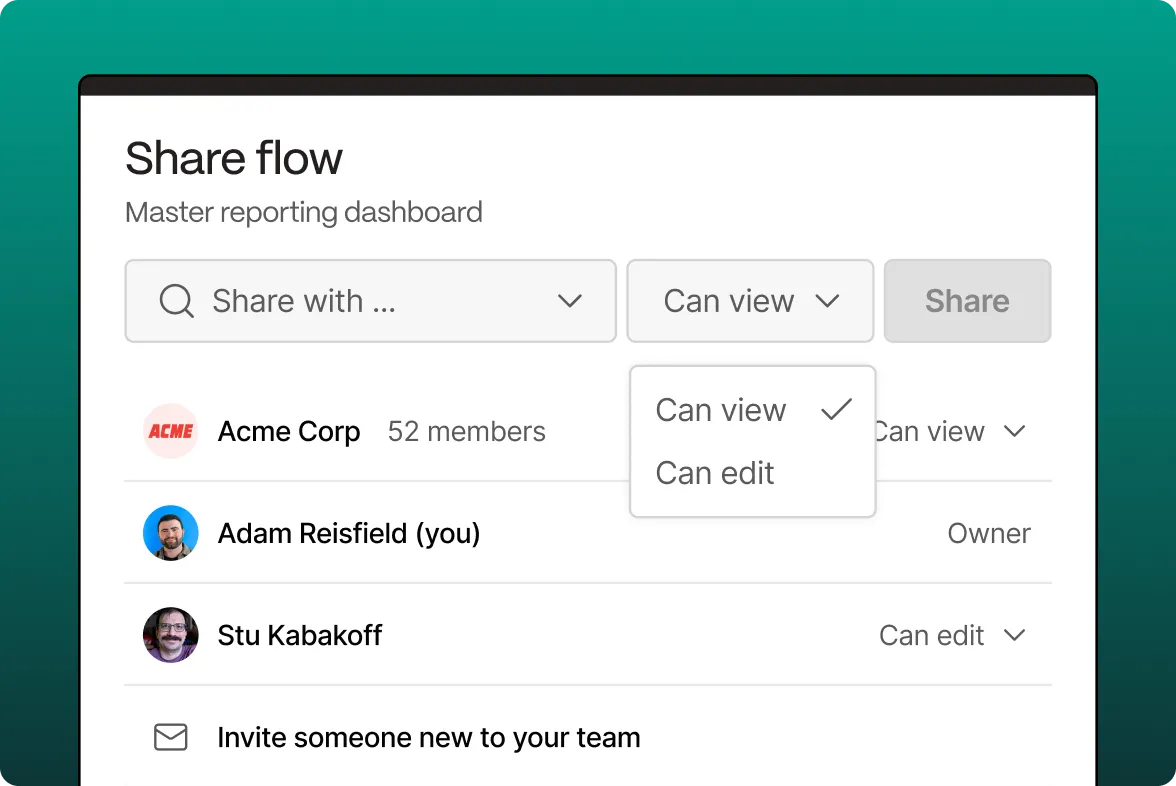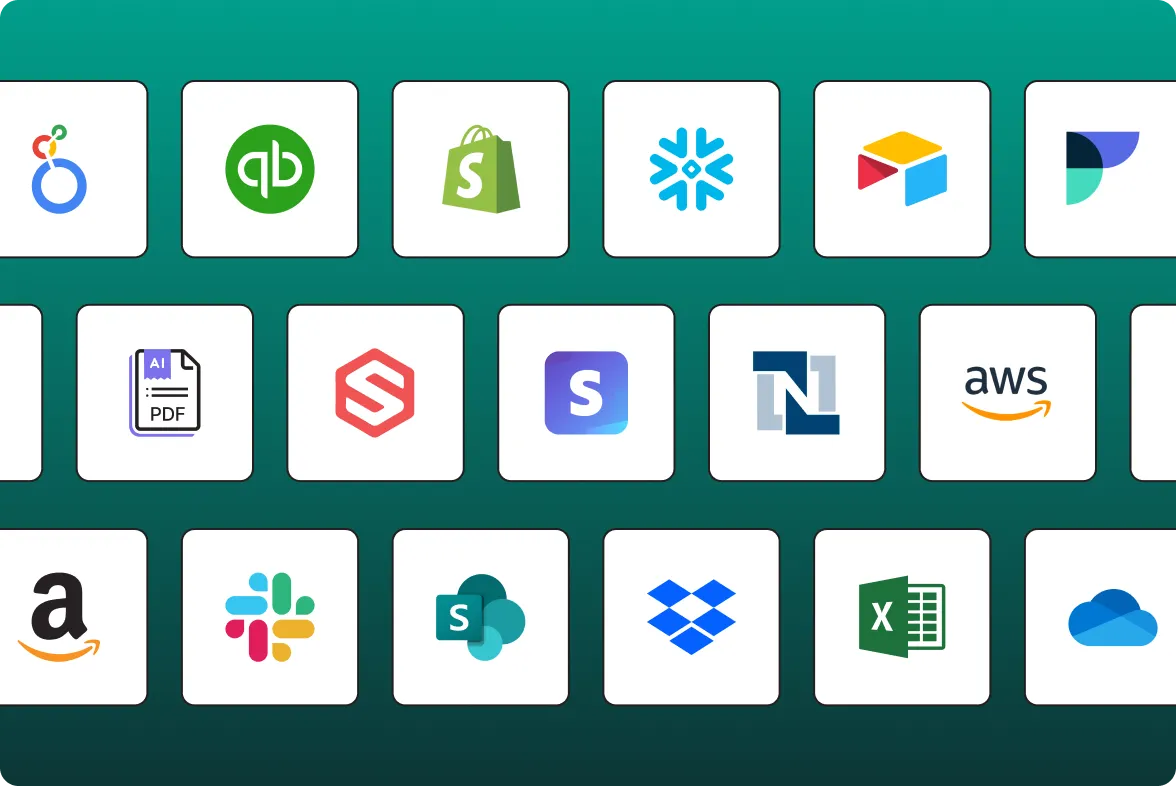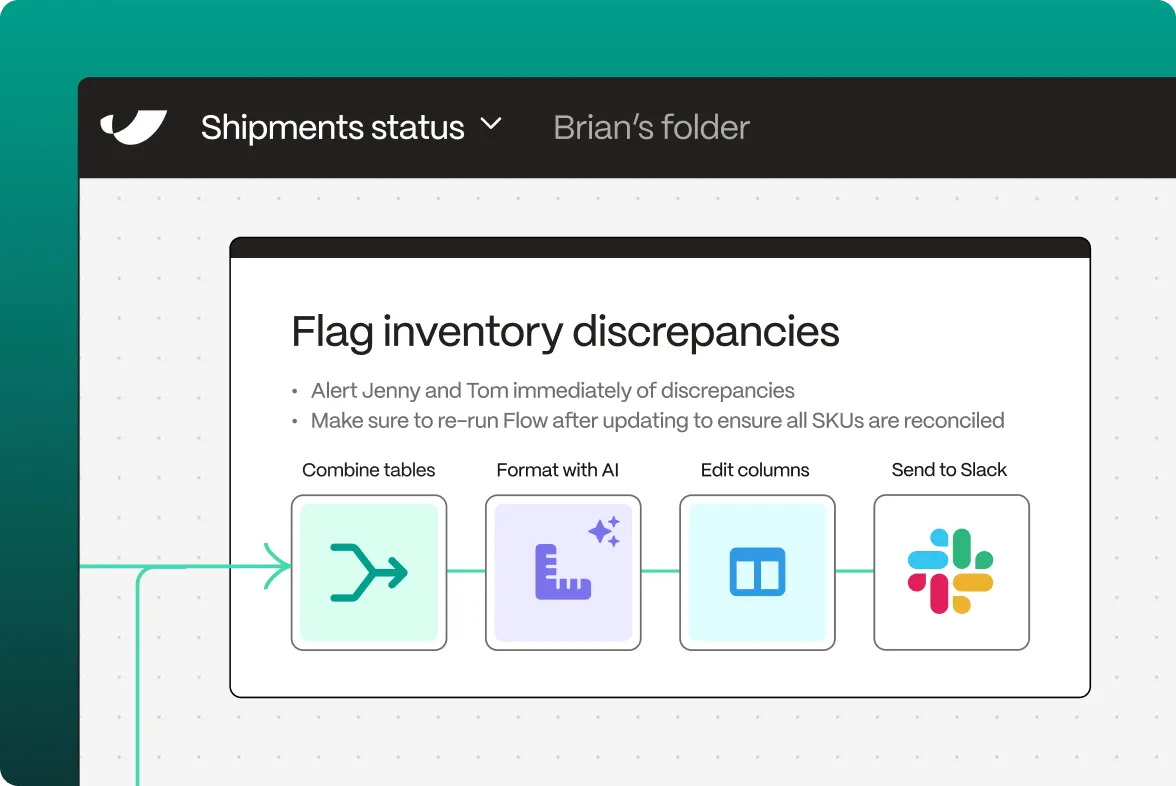Depop is home to your product listings, orders, and customer data — but by itself, it doesn’t help you run operations efficiently. Most teams end up exporting CSVs, copying numbers into spreadsheets, and trying to make sense of inconsistent data. Parabola changes that.
With Parabola, you can bring Depop data into a no-code workflow builder, apply custom business rules, and automatically sync it with your other systems. That means less time maintaining spreadsheets, and more time running your business.
What you can do with Depop + Parabola
Once Depop is connected to Parabola, you can:
- Consolidate multi-channel orders → Merge Depop orders with Shopify, Amazon, or other channels to see a single source of truth for sales.
- Keep inventory in sync → Automatically update stock levels across Depop and your other platforms to avoid overselling.
- Improve financial accuracy → Clean order data, add fee/margin calculations, and push reconciled reports into NetSuite or QuickBooks.
- Run data quality checks → Flag duplicate SKUs, inconsistent product attributes, or suspicious orders before they create downstream issues.
- Create live reporting → Build dashboards that show real-time performance instead of stale CSV exports.
Connect to Depop via API and create workflow automations
Getting Depop data into Parabola is simple, and once connected, you can shape it into the exact format your business needs. Here’s how it works step by step:
- Connect via API
Start by dragging a Pull from API step onto your Parabola canvas. Enter your Depop credentials to authorize the connection. Once connected, you’ll be able to bring in orders, listings, and customer data directly into your flow without manual exports. - Import your data
With the connection live, you can import the endpoints that matter most — orders, product listings, or customer details. All data comes in raw and ready to be structured. - Transform your data
Use Parabola’s drag-and-drop steps to clean and standardize your Depop data. Normalize product titles, align SKUs, split orders by region, and calculate metrics like margins or fees. This ensures your data is reliable before it moves downstream. - Enrich with logic
Layer in business rules to operationalize your Depop data. Flag international orders, tag promotions, or highlight anomalies that need review. Parabola gives you the flexibility to model your unique business processes visually, without writing code. - Export where you need it
Once your data is cleaned and enriched, send it to the systems your teams rely on — like NetSuite, Shopify, Google Sheets, or your BI tools. You can schedule exports so your data always stays fresh and decision-ready.
Ready to put your Depop data to work? Sign up for free and start building flows that automate and operationalize your Depop workflows in minutes.

